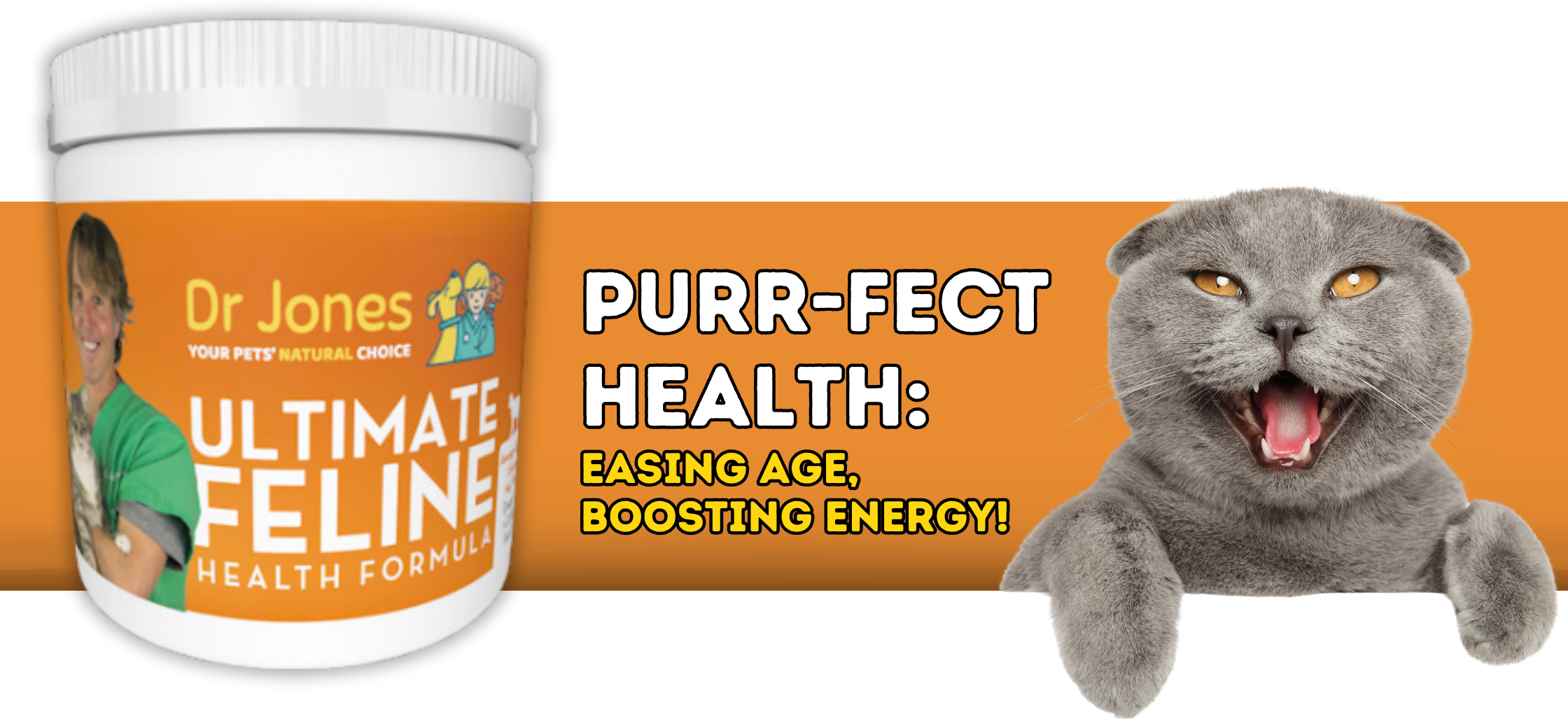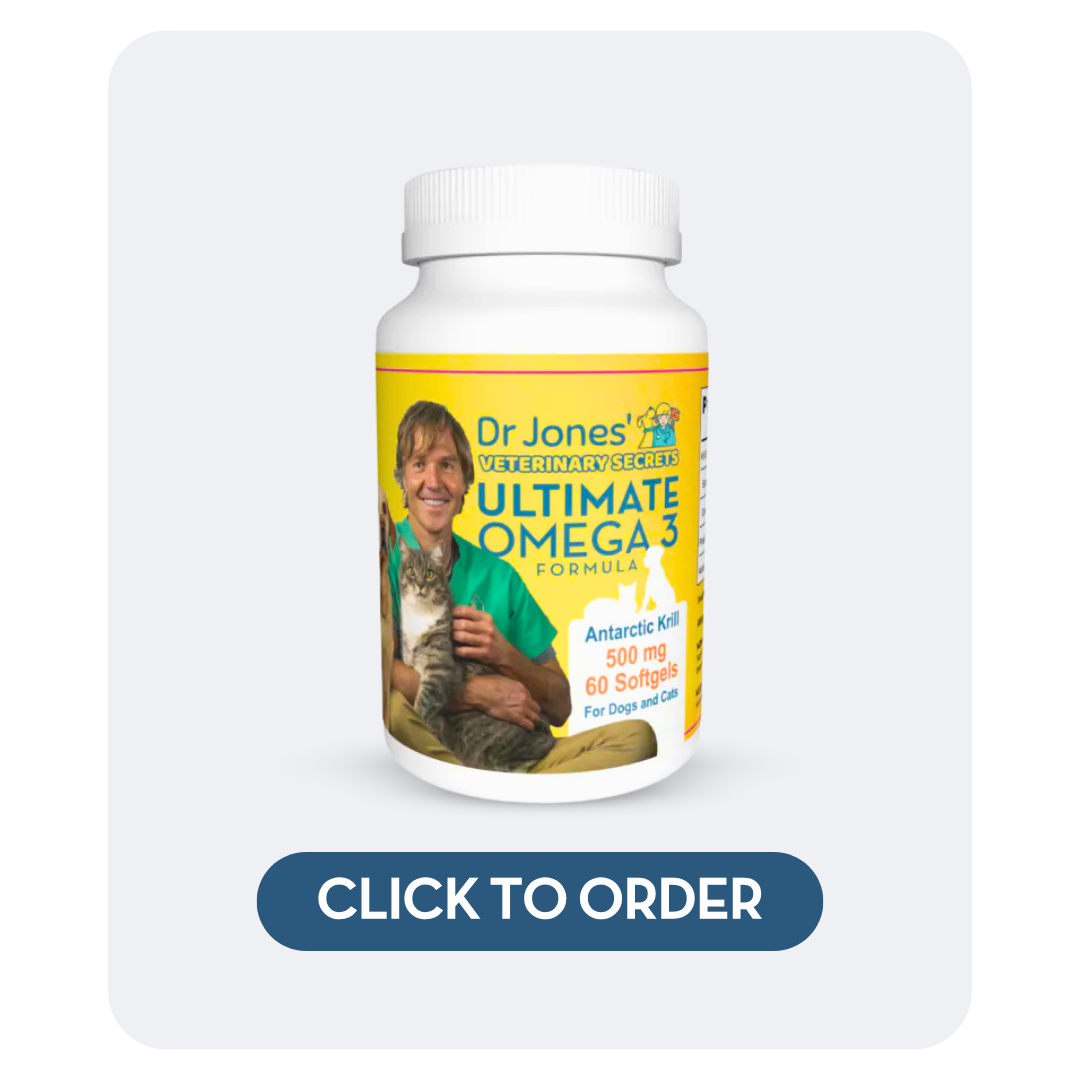How to Help Old Cats Live Longer: 7 Key Tips for Healthy Aging
![]()

Can You Make a Difference for Your Cat as They Age?
As your cat ages, it’s natural to wonder if there’s anything you can do to help them live a healthier, more comfortable life. The good news is, there is a lot you can do to support your feline friend—especially when it comes to kidney health.
Supporting Kidney Health with the Right Diet and Supplements
Kidney disease is common in older cats, but you can make a real difference by providing the right nutrition and support. One of the best ways to help is by introducing antioxidants into your cat’s diet. These powerful compounds can reduce oxidative stress and help protect the kidneys from further damage. Additionally, reducing the amount of phosphorus in their food is key to supporting kidney function. Phosphorus can be hard on the kidneys, and limiting it can ease their workload.
Another critical component is amino acids. These essential nutrients support renal function and can help your cat maintain a healthier kidney environment.
Dr. Jones’ Ultimate Feline Health Formula: A Game Changer
I created Dr. Jones’ Ultimate Feline Health Formula with these exact needs in mind. My supplement includes additional antioxidants and amino acids, and there’s one thing that sets it apart—it contains NO phosphorus. Instead, the calcium in my formula actually binds to phosphorus in your cat’s diet, reducing the amount that can potentially harm their kidneys. This formula is designed to give your cat the best possible support during their golden years.

If you’re ready to support your cat’s kidney health, you can get your bottle of Dr. Jones’ Ultimate Feline Health Formula now.

7 Tips to Ensure Your Senior Cat Stays Healthy and Happy
Caring for a senior cat is truly one of the most rewarding experiences. As our feline companions age, they may face various health challenges, but there are plenty of things we can do to help them live their best, longest life. Here are my top seven tips to ensure your senior cat stays healthy, comfortable, and happy.

1. Upgrade Their Diet
Your cat’s diet is the cornerstone of their health. Many cats are fed dry, carbohydrate-heavy kibble, which lacks moisture and is linked to several health issues, including diabetes, kidney disease, and urinary tract infections. If your cat eats kibble made from soy protein, it could even contribute to thyroid problems.
Chronic kidney disease (CKD) is common in senior cats, and it’s directly linked to their diet, particularly a lack of moisture and elevated phosphorus levels. Cats also struggle to properly digest carbohydrates, which can lead to diabetes. To give your senior cat the best chance at good health, switch them to a high-protein, moisture-rich canned food, or even a home-prepared diet that focuses on animal proteins. And don’t forget to make sure they have constant access to fresh water—consider investing in a cat water fountain to encourage them to drink more.
2. Say No to Unnecessary Vaccines
Over-vaccination can be harmful, especially in older cats. Too many vaccines are linked to kidney disease and even cancer.
For cats over 3 years old, they typically don’t need additional vaccines. Focus on maintaining overall health through proper diet, enrichment, and holistic care instead of unnecessary jabs.
3. Explore Holistic Alternatives
Many conventional medications come with side effects that can be especially tough on a senior cat’s delicate system. Nonsteroidal anti-inflammatory drugs (NSAIDs) like meloxicam and flea or tick insecticides can be problematic. Some cats tolerate NSAIDs, while others might develop severe reactions, including kidney or liver disease.
Instead, try natural alternatives. For pain relief, I recommend CBD, which can be gentler than NSAIDs. For flea prevention, consider diatomaceous earth—it’s a natural, safe option for keeping your cat flea-free.
4. Enhance Their Environment
Senior cats thrive in an enriched, low-stress environment. Stress is a significant factor in urinary tract diseases and other health problems.
Add variety to your cat’s environment with toys, scratching posts, and quality grooming time. Make sure to have a low scratching pad accessible, as this can be a game-changer for older cats. My new cat loves his slow feeder from Lickimat—it’s a simple tool that makes mealtime fun and engaging!
5. Prevent Disease Before It Starts
Kidney disease affects 30% of cats over the age of 15, and diet plays a big role. The phosphorus content in their food is a key factor in the development of kidney issues. Fish-based diets are often high in phosphorus, so it’s best to avoid them. Instead, opt for poultry as the protein source.
To further protect your cat’s kidneys, consider adding a phosphorus binder to their food, like calcium carbonate (ground eggshell). A simple dose of 1/4 teaspoon per 10 lbs of body weight daily can help reduce phosphorus intake.
Dr. Jones’ Ultimate Feline Health Formula is a great addition to your cat’s diet, as it contains no added phosphorus and includes calcium to help bind phosphorus. This can be an easy way to reduce the risk of kidney disease in your cat.
6. Tackle Common Senior Cat Issues
Dental disease and arthritis are common in older cats. To check your cat’s dental health, gently lift their lips to examine their teeth and gums. Healthy gums should be soft pink, while redness indicates gingivitis. Yellow on the teeth is plaque, which can harden into tartar.
Arthritis is another issue that many senior cats face due to wear and tear on their joints. Propolis (bee glue) is an excellent natural option for reducing mouth inflammation—just spray it on your cat’s gums daily.
For joint health, glucosamine, chondroitin, and MSM are the core supplements that can make a big difference. These are all included in Dr. Jones’ Ultimate Feline Health Formula, which provides your cat with the support they need for both dental and joint health.
7. Be an Engaged Cat Parent
Being an engaged cat parent means staying informed and proactive. It’s important to question your veterinarian about any concerns and to advocate for your cat’s health. Don’t be afraid to say no to unnecessary procedures like annual vaccines if your cat doesn’t need them. Instead, focus on preventative care and holistic supplements like colostrum (included in my Ultimate Feline formula) to boost your cat’s immune system naturally.
By making these adjustments and caring for your senior cat with love and attention, you can make a huge difference in their quality of life. And always remember, you’re the best advocate for your furry friend’s health and well-being!
Best wishes for you and your senior cat’s journey together!

P.S. Remember, you can make a BIG difference in your cat’s health by choosing the right food, avoiding harmful medications, and providing a safe, enriched environment.
P.P.S. Don’t forget to check out Dr. Jones’ Ultimate Feline Health Formula for added antioxidants, lower kidney-damaging phosphorus, and a simple way to support your cat’s overall health. It’s here to help your cat live their best, longest life.
Dr. Jones’ Ultimate Feline Health Formula: A Game Changer
I created Dr. Jones’ Ultimate Feline Health Formula with these exact needs in mind. My supplement includes additional antioxidants and amino acids, and there’s one thing that sets it apart—it contains NO phosphorus. Instead, the calcium in my formula actually binds to phosphorus in your cat’s diet, reducing the amount that can potentially harm their kidneys. This formula is designed to give your cat the best possible support during their golden years.
If you’re ready to support your cat’s kidney health, you can get your bottle of Dr. Jones’ Ultimate Feline Health Formula now.








